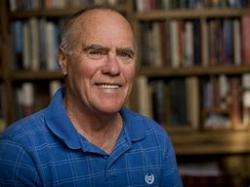Adam is a high school football player. He’s also one of many teenagers living in poverty.
When a friend of mine, a coach, told me about Adam, I thought it would be a story about one of his players. Later, I realized that Adam is one among many others in the same situation.
My friend–like every good coach or teacher I have ever known–saw something in Adam. There were many reasons why he did, and one reason is that Adam reminded him of what he was like, long ago, as a scrawny boy trying to fit in and be a valued team member.
“It’s easy to lose your heart to a young person like Adam,” I told my friend as he shared Adam’s story. Here’s why.
After Adam missed two days of practice, my friend asked the boy where he had been. “My mother’s car wouldn’t start,” Adam replied. “She lost her job,” he continued, “because she couldn’t get to work.” Adam had to stay home because he didn’t have a way of getting to practice.
My friend, the coach–being sensitive, but also cautious–asked Adam if he needed a ride home. He also offered to inspect the car in question and repair it if he could. Adam said yes.

Courtesy: Omilights
When the coach checked over the car, he discovered minor issues that even he (a non-mechanic) could fix. As he finished the job (it was now well after lunchtime), the coach asked Adam if he’d like a bite to eat. Adam declined at first, but then–yielding to hunger–finally said yes.
As they proceeded to a nearby fast-food restaurant, my friend asked Adam if he’d like to take home two additional meals–one for his mother and the other for Adam’s younger brother. Adam said he’d prefer to share.
It was apparent to my friend that one meal was barely enough to feed Adam. So the coach asked Adam if he’d phone his mother to ask if she’d like a meal for herself and another for her other son. Adam called, she said yes, and my friend and Adam exited the fast-food place with three meals in tow.
On the ride back to Adam’s place, my friend wanted to ask Adam about his home situation, but he also wanted to be respectful, too. So they talked first about football. Then, my friend eased into talking about Adam’s home life. Being brief, yet precise, Adam said: “I get what I get.”
By then, the two were at his door. Adam, always polite, thanked his coach for the meals and got out of the car. My friend drove away pondering how a high school student–a good, young man–could have formed the outlook he had expressed, “I get what I get.”
Adam, you see, isn’t one to steal and lie his way into getting what he wants.
Indeed, Adam is all the things our culture wants to see in a teenager. He attends school, does his classwork, practices and plays hard, follows directions, and is polite and honest. He is also fatherless, poor, nutrition-deprived, and a lot more of the things that go along with living in that situation.
As Coach and I talked about Adam, we wondered whether life had already beaten down Adam. “I get what I get” sound like words coming from an older person who has suffered though losses and defeats.
But Adam isn’t yet out of high school. Even so, he understands that he has to take whatever is available (sometimes scraps) and, then, get by with what he has. But like the Syrophoenician mother in the books of Matthew and Mark, he has faith for much more.
I was thinking about Adam again recently as I read an AP story. The new story was about the Pentagon asking Congress for authorization “to use the $300 million [earlier designated aid for Pakistan] for other purposes.” While I mean no disrespect to Pakistani children who are living in very difficult circumstances, I know there are many similarly situated children right here in America–just like Adam–and locally, too.
One out of four children in our county is nutritionally-deprived. They hunger for food to fuel their bodies and minds. They hunger for warmth during cold nights. They hunger for learning. They hunger for shelter.
All of them experience poverty in our otherwise wealthy land. So many of them, just like Adam, suffer through it, getting what they can, while often being surrounded by the silence of indifference.
Yes, when Coach began talking with me about Adam, I saw the teenager as one of his players. Now I realize that he isn’t just one, and he’s not just a football player. He’s one of many young people we are leaving behind.

Courtesy: Pew Research Center














